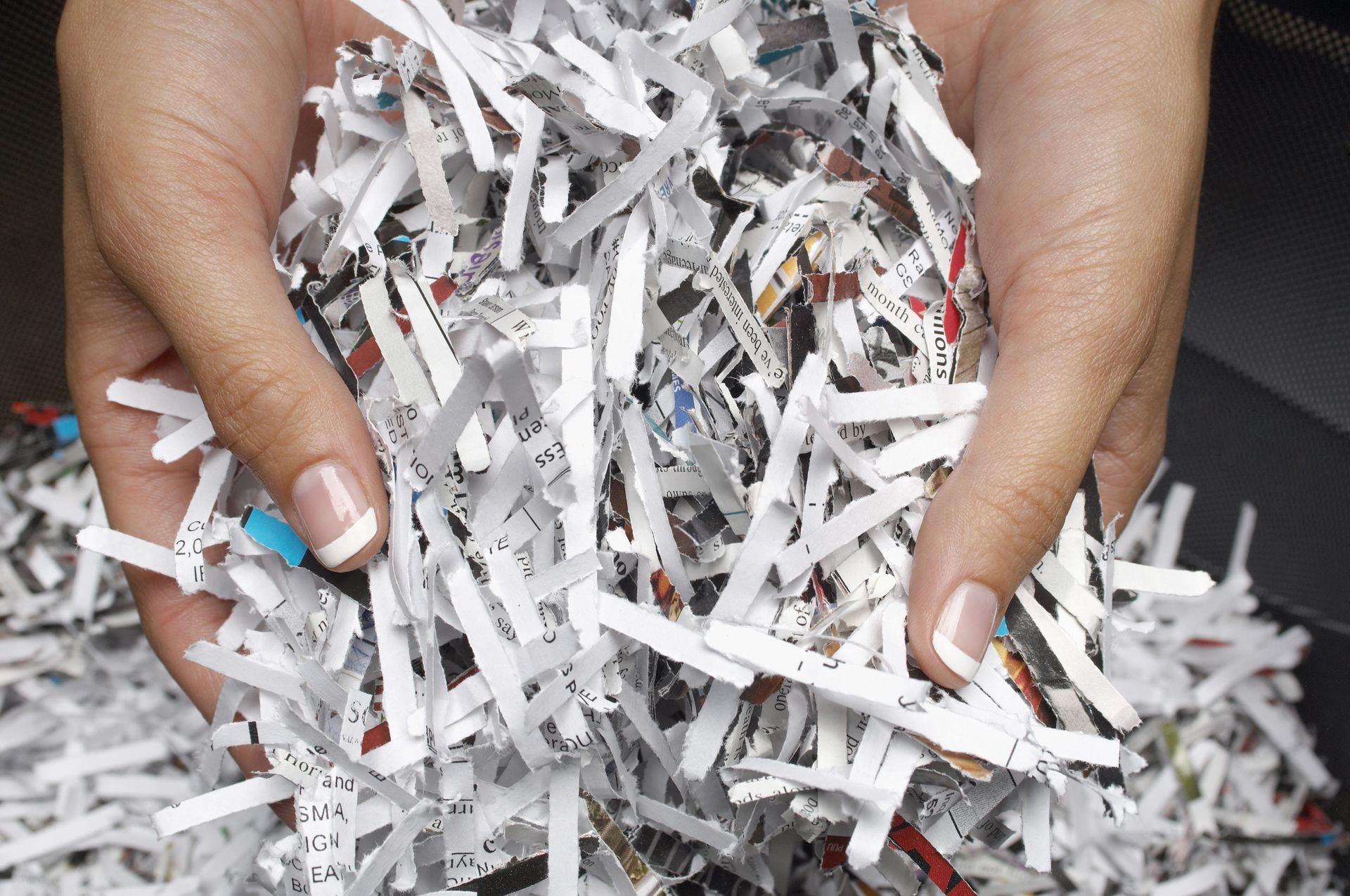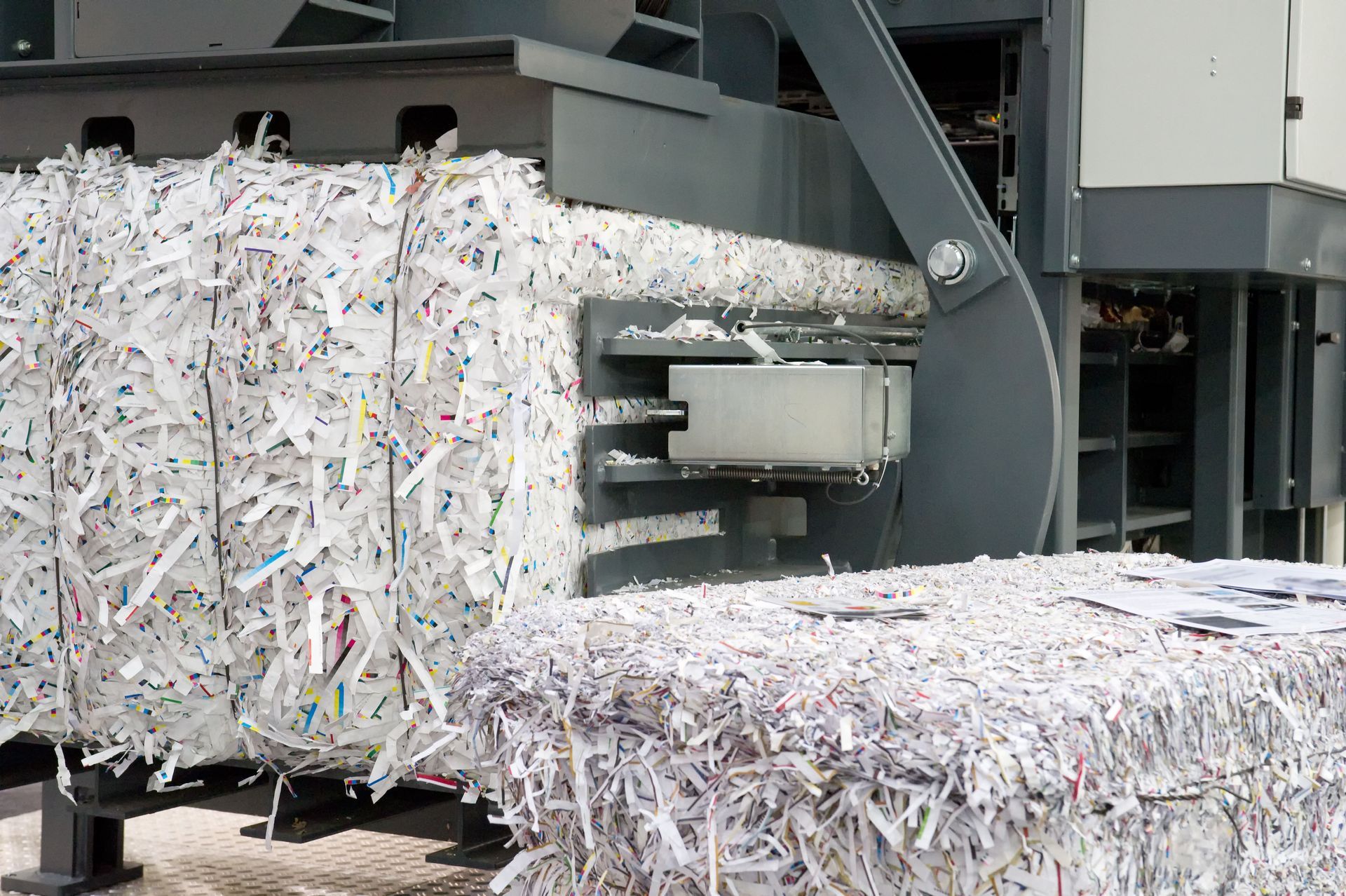8 Ways Shredding Companies Support Recycling and Environmental Sustainability
Shredding services are crucial for safe and secure disposal of materials, but their environmental role is equally commendable. As the push for sustainable practices intensifies globally, shredding companies act as pivotal allies in this transition. Let's take a look at how these companies not only aid in reducing environmental footprints but also promote a culture of sustainability.
1. Advanced Shredding Technology
Advanced shredding technology allows for the efficient breakdown of materials, which plays a significant role in reducing waste. The machines used in this process are designed to handle various types of materials, from plastic to metal, ensuring comprehensive processing. By effectively reducing materials to manageable sizes, these shredders make recycling more efficient and less resource-intensive. Furthermore, this efficient processing contributes to the minimization of waste and the conservation of resources. As the technology evolves, these machines become even more effective, demonstrating a commitment to innovation and environmental responsibility.
Energy-efficient shredding techniques are at the forefront of sustainable practices adopted by shredding companies. Investments in cutting-edge machinery that requires less energy to operate are driving these efforts. The adoption of such technologies helps decrease the carbon footprint associated with shredding operations. Advanced machinery not only lowers energy consumption but also enhances the longevity and effectiveness of processing materials. These initiatives reflect the commitment of shredding companies to minimizing environmental impacts while maintaining operational efficiency.
Shredding companies adopt eco-friendly practices in their disposal processes, minimizing negative environmental impacts. Their operations often use energy-efficient machines that consume less power, further reducing their carbon footprint. Additionally, eco-friendly lubricants and coolants are employed to minimize environmental harm. These sustainable practices highlight the commitment of shredding companies to uphold environmentally sound processes. By integrating environmentally friendly methods into their core operations, shredding companies reinforce their role in advancing sustainability within the industry.
2. Optimized Sorting Techniques
Optimized sorting techniques are vital in ensuring recyclable materials are accurately segregated from waste. Shredding companies employ sophisticated sorting systems to differentiate materials based on their properties, such as size, weight, and material type. This precision sorting is essential to ensure that the recyclable materials are directed towards appropriate recycling streams. Advanced sorting minimizes contamination and increases the purity levels of recycled materials, which is crucial for the manufacturing of high-quality recycled products. In turn, this supports the production of new goods and lessens the demand for virgin materials.
3. Optimized Logistics
Optimized logistics are essential in making shredding operations more environmentally friendly. Efficient transportation solutions minimize fuel consumption during the collection and delivery of materials, reducing the carbon emissions associated with logistics. Careful planning ensures that routes are assessed and selected to maximize fuel efficiency and minimize travel distances. Through strategic logistics management, shredding companies effectively reduce their environmental footprint. This logistic optimization is crucial in supporting the sustainability goals within the recycling and waste management sector.
In addition to route planning, many shredding companies leverage real-time tracking and fleet management technologies to enhance logistics efficiency. These tools allow companies to monitor vehicle performance, anticipate maintenance needs, and adjust schedules dynamically to reduce idle time and fuel usage. By incorporating data-driven decision-making into their transportation operations, shredding companies not only cut emissions but also lower operational costs. This combination of technology and strategic planning strengthens their overall sustainability efforts while maintaining reliable service for clients.
4. Integration with Recycling Facilities
According to the EPA, there are about 681,000 jobs in the U.S. recycling industry, and many of them involve recycling paper products. Shredding companies frequently collaborate with recycling facilities to ensure that processed materials are recycled correctly. This integration is crucial in closing the loop of material usage and promoting the circular economy. The collaborative efforts not only enhance the efficiency of recycling operations but also ensure that valuable materials are not lost in the process. By coordinating with recycling facilities, shredding companies help to maximize the amount of waste that is diverted from landfills. Such partnerships underline the critical role shredding companies play in the broader recycling industry.
5. Minimizing Landfill Contributions
Reducing the volume of waste sent to landfills is a key environmental benefit of shredding services. By breaking down materials into smaller pieces and facilitating their recycling, shredding companies significantly reduce landfill contributions. This process not only conserves landfill space but also reduces the harmful environmental impacts associated with landfill sites. By diverting waste from landfills, shredding companies help mitigate issues such as soil contamination and greenhouse gas emissions. Engaging in these practices showcases their role in responsible waste management and resource conservation.
6. Contribution to Material Lifecycle
Shredding companies significantly impact the lifecycle of materials by keeping resources in circulation. Their operations help maintain continuous material flow, preventing the depletion of new resources. By recycling and reintroducing shredded materials into production cycles, they contribute to the circular economy model. This approach not only lessens the burden on natural resources but also helps in reducing waste generation. As a result, shredding services are integral to creating a balanced and sustainable industrial ecosystem.
Shredding processes often result in byproducts that can be repurposed, which reduces the need for new resources. These reusable byproducts present opportunities for innovation in various industries, including construction and manufacturing. For example, shredded paper can be converted into mulch, packaging materials, or insulation products. The ability to transform waste into useful products exemplifies the inventive spirit of shredding companies and their commitment to sustainability. This practice not only cuts down on waste but also bolsters the availability of sustainable materials in the market.
7. Reduction in Raw Material Extraction
Shredding companies play a crucial role in reducing the dependency on raw material extraction, prominently featuring in efforts to conserve natural resources. By focusing on recycling and reprocessing used materials, they minimize the necessity of sourcing virgin resources. This reduction not only saves finite resources but also decreases the environmental damage associated with raw material extraction. The results are noticeable in various industries that rely on reclaimed materials for production. The commitment to resource conservation by shredding companies highlights their integral role in sustainable industrial practices.
Moreover, shredding companies contribute to lowering the energy consumption associated with the production of new materials. Manufacturing products from virgin resources often requires significant energy for extraction, processing, and transportation. By supplying high-quality recycled materials, shredding services help industries bypass some of these energy-intensive steps. This not only reduces greenhouse gas emissions but also promotes a more sustainable industrial cycle, reinforcing the environmental benefits of using reclaimed resources over newly extracted ones.
8. Regulatory Adherence for Resource Efficiency
Adherence to environmental regulations is paramount for shredding companies striving for resource efficiency. Regulations often mandate best practices in resource conservation, guiding companies toward sustainable operations. Compliance with these standards is necessary not only for legal reasons but also for sustainability missions. By aligning operations with regulatory requirements, shredding companies enhance their commitment to environmental stewardship. This alignment underscores their role as responsible industry leaders fostering sustainable development.
Shredding companies are pivotal in promoting recycling and environmental sustainability. Their integration of innovative technologies, strategic partnerships, and sustainable practices demonstrates a profound commitment to environmental stewardship. By supporting recycling processes, minimizing waste, and advocating sustainable practices, they contribute significantly to eco-friendly initiatives. Their role extends beyond waste management, impacting economic, industrial, and community spheres. Shredding companies such as ALL-SHRED, Inc continue to evolve as key players in the worldwide effort to foster environmental sustainability and circular economy models. Reach out to us today to get started!












Share On: